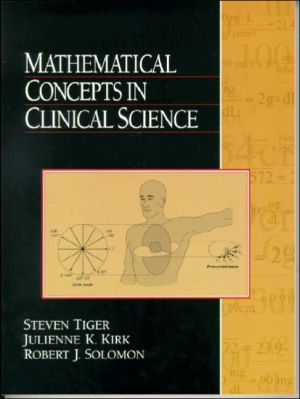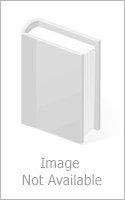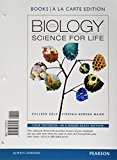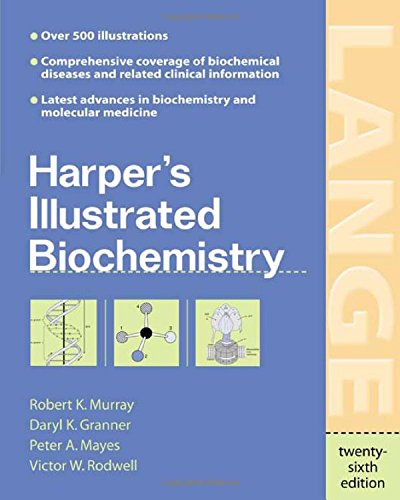Mathematical Concepts in Clinical Science
Tiger PA-C, Steven
Kirk PharmD, Julienne
Solomon MS PA-C, Robert
This comprehensive resource brings together the essential mathematical concepts applicable to basic clinical science - medicine, nursing, pharmacology, and physiology, in a user-friendly manner that encourages even the math-phobic reader. It serves as a self-study guide on scientific-notation, logarithms, and unit-conversion techniques that relates these tools and methods to clinical topics. For anyone interested in a health related career, this book is a must read before applying to a clinical training program.
James A. Hampton
This text is a description of the basic mathematical principles that are used in clinical medicine. "The purpose is to provide an understanding of the derivation and application of mathematics encountered in entry level clinical science. One of the major goals is to provide students who have math anxiety an in-depth explanation. This book is needed because the application of mathematical principles to biological processes is crucial for our understanding and comprehension of the pathology of disease. For the most part, the authors meet their objective of providing an understanding of the mathematics used to obtain and analyze clinical data. "According to the authors, this text is targeted at students either preparing for or enrolled in medical and allied health programs. Based on the content of the book, it is primarily targeted at physician assistants, nurse practitioners, and other allied health professionals as well as first or second year medical students. Considerable in-depth discussion of the mathematics behind the clinical data is provided. However, discussion of basic science is minimal and the authors assume a considerable amount of knowledge on the part of the reader. The authors are credible authorities on the subject matter. "Basic units of measurement, chemical principles found in biological systems, as well as derivation and interpretation of clinical data from the major systems such as cardiovascular and renal function are discussed. In addition, mathematical principles of statistics, pharmacology, energy balance, and common diagnostic tests are covered. The authors introduce the mathematical principles in an orderly and understandable fashion. The number ofdifferent examples provided should reassure any student with math anxiety. The quizzes at the end of each chapter are useful for students who wish to gauge their understanding of the presented material. The use of limited clinical case presentations is very helpful and timely. A shortcoming is the minimal amount of discussion regarding the basic sciences. The authors acknowledge this shortcoming in the preface. In addition, the authors frequently introduce biological terms without definition. An expanded glossary would be very helpful for the uninformed student. "This text is timely and useful as well as needed. As medicine becomes more and more complex, all practitioners in the biological sciences will need to be fluent in the mathematical language of biological data.
| Name in long format: | Mathematical Concepts in Clinical Science |
|---|---|
| ISBN-10: | 0130115495 |
| ISBN-13: | 9780130115492 |
| Book pages: | 256 |
| Book language: | en |
| Edition: | 1 |
| Binding: | Paperback |
| Publisher: | Prentice Hall |
| Dimensions: | Height: 10.87 Inches, Length: 8.18 Inches, Weight: 1.64905771976 Pounds, Width: 0.735 Inches |
















